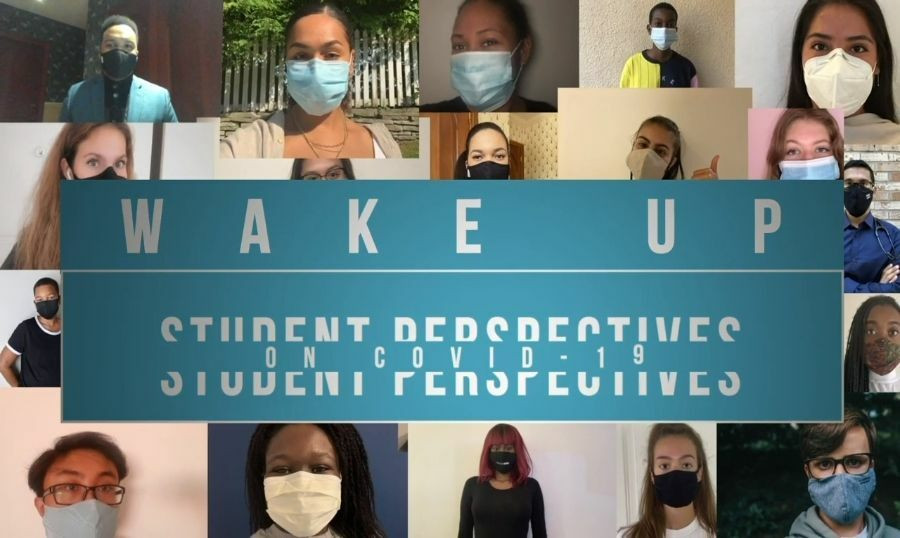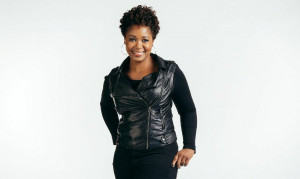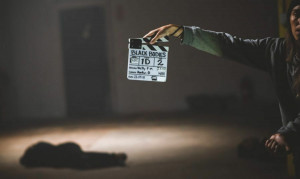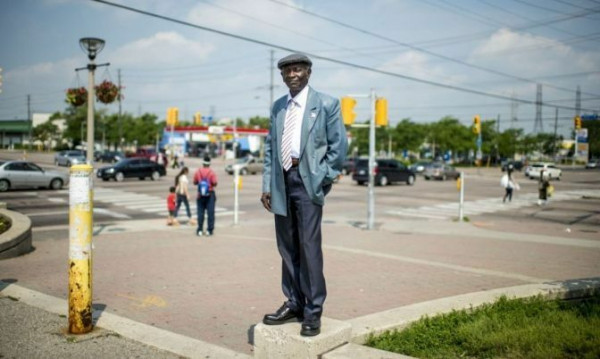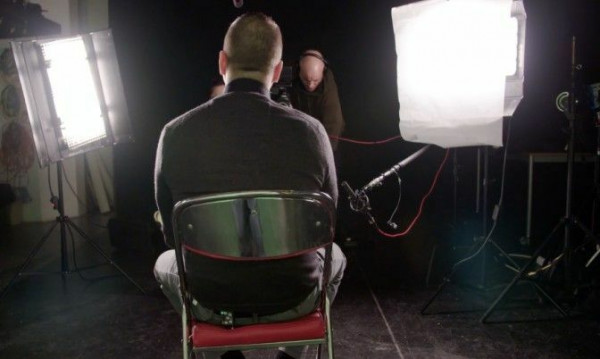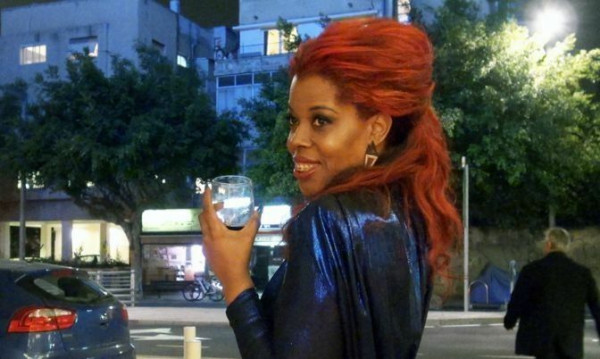Produced by undergraduate students, Janae Allen and Geneva Hines, "Wake Up: Student Perspectives on COVID-19" documentary seeks to bring awareness to the struggles faced by students adapting to a post-COVID world. The two interviewed 34 students from 12 different countries to find out how students are coping and adjusting to the process. We interviewed Janae and Geneva regarding the production of their incredibly informative documentary.
Can you tell us a little bit about yourselves, and what inspired you to produce this documentary?
Geneva Hines: I’m a second-year student in Media Production at Ryerson University. I enjoy everything media. Janae approached me about the idea of creating the documentary, so I was on board with making it. Both of us saw that within our demographic and age group, a lot of people thought that they weren’t going to get affected by COVID-19, or that they could still go out with their friends and still be okay. We wanted to show that it’s a very serious thing. You have to be aware of that, but you can also still live your life, even though we were in quarantine and now we still have to wear masks in public.
Janae Allen: I’m a first-year student at McGill University. I came to the documentary from an activist perspective. When I approached Geneva, I had just met up with an aunt of mine. She had told me that she was kind of discouraged – that she felt that young people felt they were invincible. And from that, an idea sparked. I wasn’t sure what type of perspective we were going to go by, I just knew I wanted to do some type of documentary about COVID. So when I reached out to Geneva about it, she came up with the student perspective. After that, we just rolled with it.
How long did it take the documentary to come together? When was production started?
Janae Allen: As soon as I reached out to Geneva, we started right away. We started production around the last week of May, and from there, I started with the networking. So, figuring out the logistics of who we wanted in the documentary. And we kind of went back and forth about students and having medical professionals in the actual documentary. So it took about a month and a bit to get everybody on board and figure out what students we wanted in the documentary.
Geneva Hines: When Janae and I reached out to people, we got them to put their videos into Google Drive, and Janae transcribed what they said because when editing the timeline, it was just better to see the script and be able to arrange it that way.
When we reached out to everybody, we just told them to talk about their lives, or whatever they wanted to talk about. When we got that information, we realized the themes that kept occurring, so it was easy for us to figure out the main topics that we should touch upon that people are wanting other people to know about.
You interviewed 34 students from 12 different countries throughout your documentary. How did you go about connecting with this diverse range of people and getting them to tell their stories?
Janae Allen: It’s actually kind of funny. We kind of just slid in their DMs, literally. Because I’m an entering university student, I was put in the “Class of 2024” Instagram page. So I just went through their bios. If they had a different country flag or in their description, we messaged them. We sent a slideshow presentation to many people and hoped that they’d want to take part in it.
Geneva Hines: And even through our own social media, we really tried to use our own social media presence to get people. So, we put posters in our stories asking anyone who wants to take part to come forward. Either people volunteered, or we reached out. For specific countries, I lived in residence first year, so there were a lot of international students in my building. I reached out to some of my close friends or people who I knew of in the building who went back home or were still in Canada due to flight restrictions.
While watching the documentary, it was clear that although these students all come from different countries, there were many commonalities between the changes to everyday life. Whether it be becoming distracted by their studies, or being isolated from their friends. What were some of the biggest challenges you yourselves have faced as youth adapting to a COVID-19 world?
Geneva Hines: In terms of my program, because it is a Media Production program and it is hands-on… going into first semester, there are things like single camera or audio and post-design which we would be in the labs for. All of that will be online, so having to adapt to the situation. Even towards the end of first year, I worked in a multi-camera class where you’re on set, and we have cameras and everything. And so, we had to do that fully online as well. Just getting used to that, and figuring out that it’s not the end of the world – classes are still running, it will be a different year, it will be a shift, but it’s still possible to learn. And I think Janae and I through this project as well have shown that during COVID, you can still be productive, you can still do things – it’s not just sitting and watching TV all day.
Janae Allen: I would say for me, I think this would be the same for Geneva as well, but we’re both planners. We have several different calendars and lists all over our rooms. With that being said, everybody has had to shift their plans and go with the flow. And I’m definitely not a ‘go with the flow’ person. I like to know what’s scheduled for the next 5 minutes, I like to know what I’m doing. So the fact that a lot of my plans were cancelled and I had to figure out what’s next was a strenuous process. Just trying to figure out, for example… I planned my entire summer from day-to-day, like the job internships, summer trips, from January. To find out a month before, that they would all be cancelled was devastating, but this opportunity I would say, let both of us figure out how to adapt and how to persevere.
Being a first-year student Janae, you’re in an interesting situation because you’re the first cohort to be affected by COVID, which has to adapt to the ‘new normal’ of orientations or frosh week. Did you find that difficult? Is it all online now, or a mix of social distancing?
This pulls on some heartstrings because I was so excited for McGill Frosh. And my frosh was last week, so from Thursday to Saturday, it was completely online. McGill’s pretty known for their frosh, so that was a bit disappointing. And my wifi was unreliable, so I couldn’t even really do 80% of the activities that were planned. So that’s devastating. But, it is what it is, everybody has been going through the same thing, so I can’t really single out my experiences because everyone is going through something similar. I actually connected with my classmates beforehand, because I knew something would mess up with the wifi. So, via the ‘Class of 2024’ Instagram, I kind of just read everybody’s bio to see if we had any similarities, and just messaged them. I’ve been able to make friends through doing that.
Do you have any advice for students trying to cope with the impacts of COVID-19?
Geneva Hines: Even though there’s a lot of adjustments that have to be made, there’s still an opportunity to do what you love, still meet up with friends, but socially distanced wearing masks – there’s still opportunity. And I feel like now, you can say that there’s a bit of pressure in terms of, everyone’s comfort level with the masks. Because sometimes you’re meeting up with friends, and some people are like “oh, it’s fine”, and others aren’t. So just having to find a general boundary that everyone’s comfortable with. Especially with my particular program where everything’s so hands-on and you’re always working with people. The friends that I’ve made in first year, trying to connect with them and meeting up outside and distancing so that we can take off our masks if we’re far enough apart… things like that.
Janae Allen: I would definitely say this time specifically has been a great test to see how willing people are to work on their craft, no matter the circumstance. Geneva has been able to work on her craft, and perfect her trade throughout this entire pandemic from the beginning – and who knows when it will end. Coming from an activist standpoint, I’ve been able to advocate for masks and making sure people are being heard, and amplifying the voices of young people. So, I would advise young people to take this time and do what they really love. Because this is ample time to perfect our craft and maybe find new hobbies if [they] don’t have one yet. Find new opportunities to engage and be a part of something bigger than themselves.
Just building on that, many of the students featured did mention that they decided to turn their lives around and spin their situations in a positive way, such as learning new skills, etc. Aside from producing this incredible documentary, are there any positives you’ve experienced due to the pandemic?
Janae Allen: I would definitely say, it kind of corresponds to the documentary, but I do the communications side of things, so I was able to learn how to draft press releases, and how to make sure my emails make sense and are clear when sending them out to big corporations – just because a lot of people are busy. Or how to capture somebody’s time during this pandemic. Because especially the people that we were reaching out to, they were extremely busy with other things. So, how were we going to communicate to them in a way that allows them to realize that we’re worth their time? Those are all transferable skills that I’ll be able to take on in my future studies.
Geneva Hines: And I think for me, as you already know… Janae and I are very organized people, but, in terms of keeping the files… So, for this particular piece, there were Premiere Pro files, Illustrator files, After Effects files. Organizing those, I’ve never had to do that to a point where there was like 20 animations and over 100 video clips. I think I’ve learned how to organize those a bit better, in terms of my placement. Because with Adobe files, if you misplace something then it will just disappear. It will delete itself. So, just being aware of that type of thing. And then, just the Adobe platforms in general. Going into my classes, I only really touched Premiere Pro. And after this project, I’ve learned to get better at all the Adobe programs as well as having a deadline and staying within that deadline.
What’s the most important thing you’d like viewers to take away from this documentary?
Janae Allen: The whole point of the documentary is to squash the invincibility complex that young people have. And I think it really stemmed from earlier messaging from healthcare workers and government officials that young people were less susceptible to contracting the virus. But young people took that as, “okay, I’m invincible or it doesn’t affect me or impact me in any way”. But we are trying to communicate and convey that maybe the virus doesn’t affect you physically, and we hope it never will, but there are other components to impact. There’s the financial aspect that we highlight, the mental aspects, and even the working aspect of things. There’s just so many tiers to impact that haven’t been addressed, that the media forgets all together. So we wanted to amplify the voices of teenagers all across the world. So people know that no matter where you’re from, no matter your level of income, or your status… You are impacted to some degree.
Geneva Hines: And adding on to that, I would say, just the importance of thinking about everybody and not just yourself. I feel like this time has really shown how individualistic our society can be. The whole point of the mask isn’t even to protect you, it’s to protect others from you. So, you can really see who’s taking it seriously and who isn’t. I feel like this is the time where people are realizing the importance of sticking together. And in order for this to even end, we need to realize that everyone needs to be on the same page, everyone needs to be taking this seriously, and then that way, we can deal with this and have it end sooner rather than later.
The full documentary released on September 16th, via Youtube.
